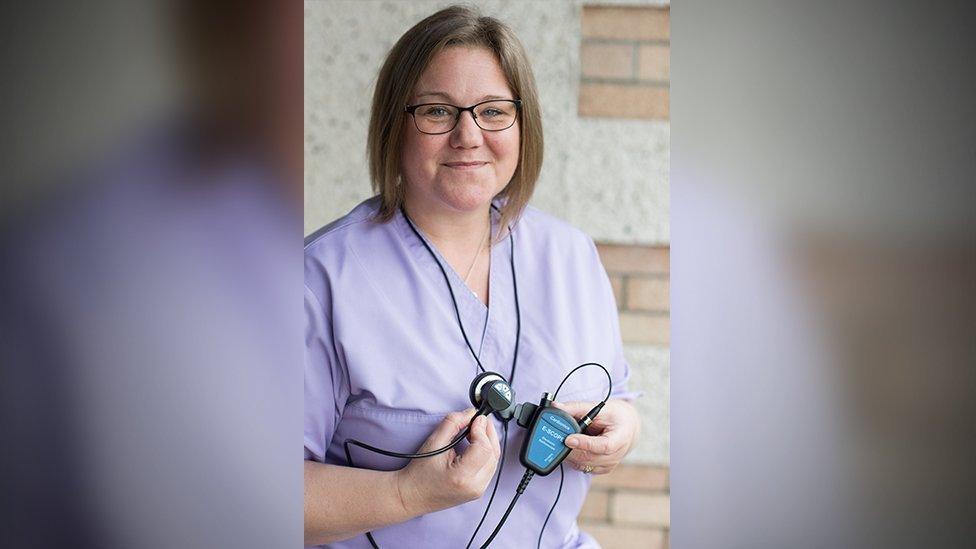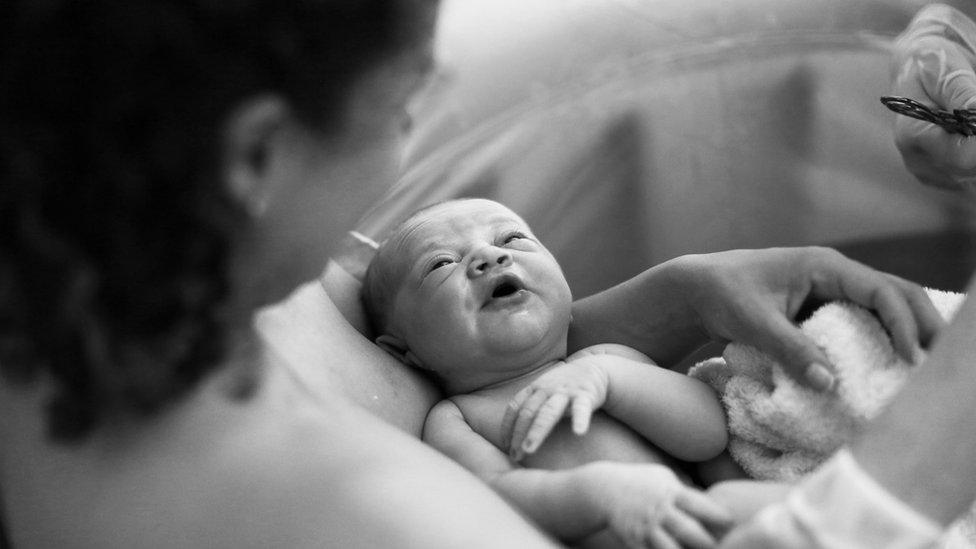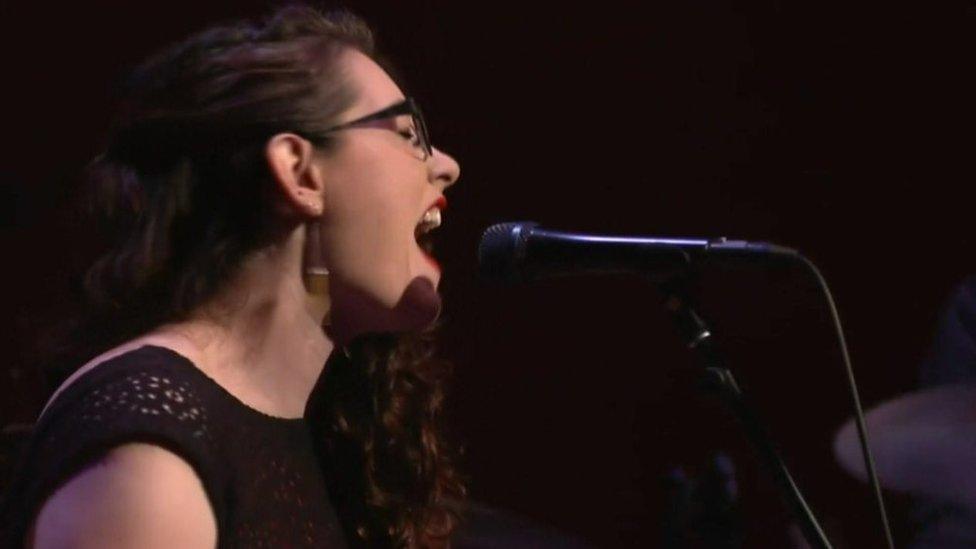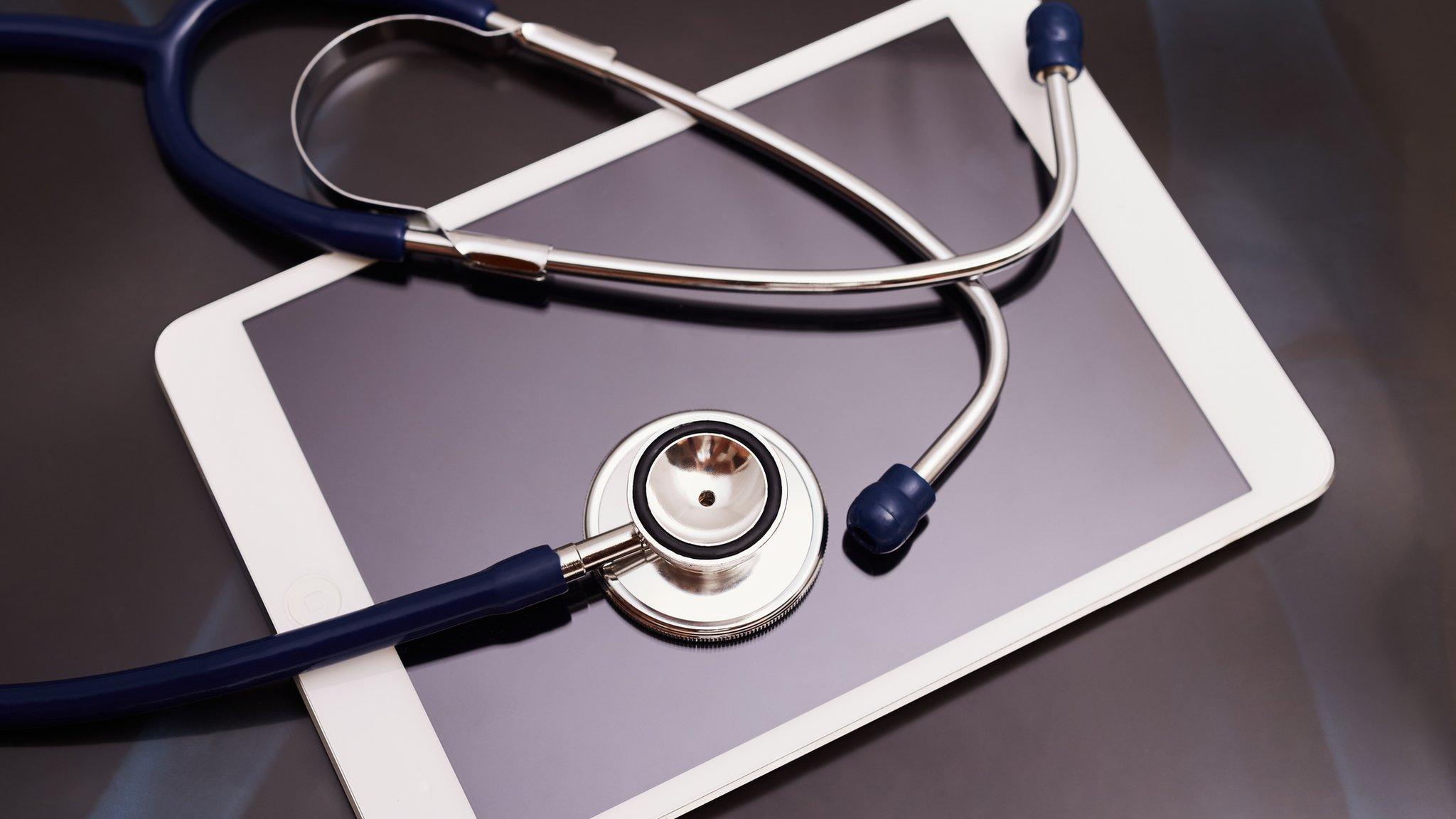Meet Wales' first profoundly deaf midwife
- Published

Sian Preddy is Wales' first profoundly deaf midwife
Sian Preddy, from Bridgend is Wales' first profoundly deaf midwife. Here she explains how she decided to pursue a career she loves and how she has overcome barriers.
I was four years old when I was first diagnosed as deaf.
My mother cried and cried when told the news. She had known there was something wrong with me but was constantly brushed off by doctors as an overly anxious mother; she was so relieved to finally have a diagnosis.
After that, I was given a hearing aid but just ripped it off. Nothing helped. I kept getting ear infections and by the age of 14 was classed as profoundly deaf.
Because I had spent so much time in hospital as a child, I was interested in the medical world and wanted to be a nurse.
But at school, I was told it wasn't an option. There were no deaf nurses.

More stories about people and deafness:

As the years went on, I had two children.
And I remember the midwife at my first birth saying I would be a fantastic midwife because of my personality; it just stuck.
Because I wanted to hear my children, I then had a cochlear implant.
Adapted stethoscope
It's an electronic device that helps deaf people hear by sending signals to the nerves used for hearing. It comes in two parts - a small device placed under the skin above the ear, and a headpiece that sits on the outside of your head.
I then applied for midwifery training and haven't looked back.
So far, I've completed two years at the University of South Wales.
The implant helps me hear things, such as monitors and emergency buzzers that are essential in midwifery.
I also have a specially-adapted stethoscope so I can hear babies' heartbeats.
But I still face challenges.

Sian Preddy said delivering babies "brings tears to my eyes"
When studying at the university, I'm in a class of 22 and I struggle to hear. And when out on placement, I have to explain to people that I'm profoundly deaf but can hear via an implant.
Sometimes, I'm meant to use a telephone, which is really difficult, but I try to avoid it if I can. The birthing room too can be challenging.
When a woman is in labour, it is important to be able to hear the monitors and heartbeat of the baby. But if you build up a good relationship with the woman, it helps things go fine.
When I gave birth, for instance, I didn't have an interpreter. But the midwives were amazing and their facial signs and body language were enough to reassure me.
So I try to build that sort of trust and rapport with other women in labour.
Being deaf doesn't affect the work I do.
'A privilege'
In fact, I often don't tell birthing women I am deaf.
I want them to be able to get to know me first, so usually, I tell them after their baby has been born and we are doing some baby checks.
They then realise there is something different with my hearing, so that's when it comes up.
Delivering my first baby was amazing; what a privilege to be part of something so private and so special.
It brought tears to my eyes then, and it still does.
It's amazing to be nominated for this award and it's lovely to be recognised for what I am doing.
I don't think of myself as an inspiration; I'm just me.
But if I can inspire a deaf person to do something they want to do or at least find out if it's possible, then that's great.
Sian has been nominated for Disability Wales' #IAmEmbolden awards to honour women for breaking down barriers and empowering others.
- Published12 May 2017

- Published14 September 2017
